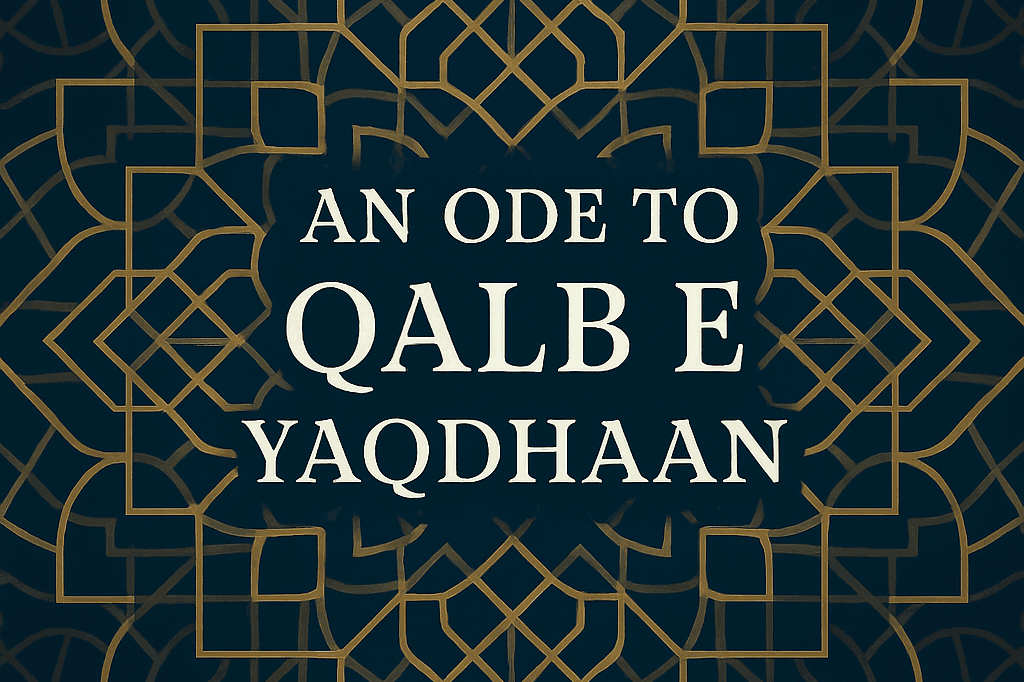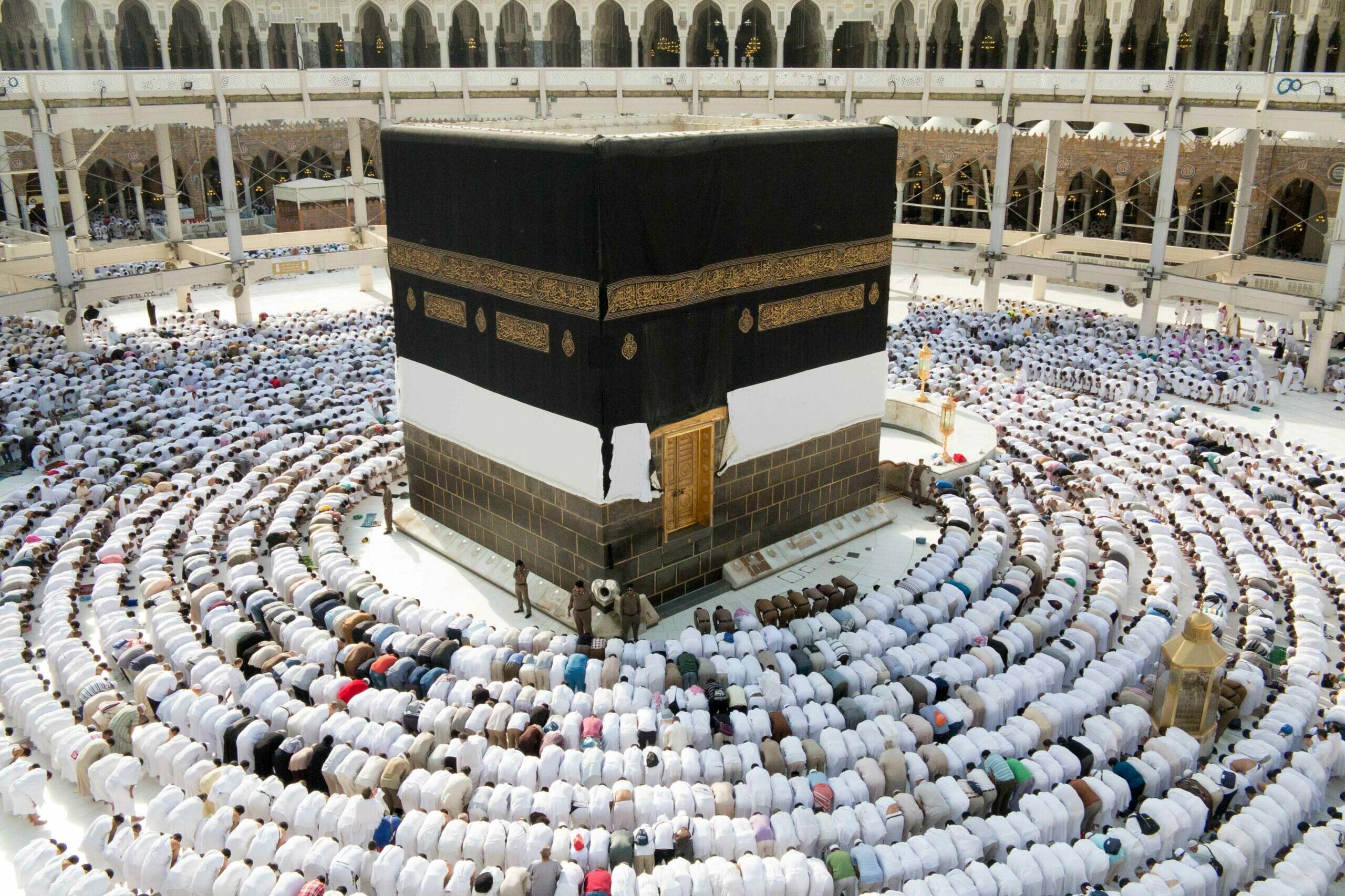بسم ﷲ الرحمٰن الرحیم
Spiritual Growth and Development
Arshiya Ukaye & Neha Zafar
TIL Women English – Year 2
Spiritual growth and development are fundamental aspects of Islam, guiding Muslims towards a deeper connection with Allah and fostering a balanced, righteous life. Rooted in the teachings of the Quran and the Sunnah (traditions of the Prophet Muhammad ﷺ, the journey of spiritual growth in Islam is a holistic process that encompasses both inner and outer dimensions of a believer’s life. It involves nurturing one’s faith, purifying the soul, enhancing character, and engaging in continuous self-improvement.
Spiritual growth
Meaning of Spirituality in Islam
Spirituality in Islam is defined as a relationship with Allah that enhances an individual’s self-worth, sense of meaning, and connectedness with others. It is achieved through reverential fear of Allah and obedience to His will, combined with a love for Allah, as mentioned in the Quran:
يَـٰٓأَيُّهَا ٱلَّذِينَ ءَامَنُوا۟ مَن يَرْتَدَّ مِنكُمْ عَن دِينِهِۦ فَسَوْفَ يَأْتِى ٱللَّهُ بِقَوْمٍۢ يُحِبُّهُمْ وَيُحِبُّونَهُ
O believers! Whoever among you abandons their faith, Allah will replace them with others who love Him and are loved by Him. (Quran 5:54)
In Islam, spiritual growth is not an abstract concept but a practical, everyday commitment to Development in Islam is a multi-faceted concept that encompasses spiritual, moral, social, and economic dimensions. Rooted in the comprehensive teachings of the Qur’an and the traditions of the Prophet Muhammad (peace be upon him), Islamic development aims to foster the well-being of individuals and communities in a balanced and holistic manner.
Foundations of Spiritual Growth in Islam
- Tawhid (Monotheism) The cornerstone of Islamic spirituality is the belief in Tawhid, the oneness of Allah. This belief nurtures a profound sense of connection and accountability to the Creator.
قُلْ هُوَ ٱللَّهُ أَحَدٌ
ٱللَّهُ ٱلصَّمَدُ
“Say, ‘He is Allah, [Who is] One, Allah, the Eternal Refuge.” (Quran 112:1-2)
Tawhid instils a sense of purpose and direction, guiding Muslims to live in accordance with divine will.
- Ibadah (Worship) Worship in Islam goes beyond ritual practices. It encompasses every action done with the intention of seeking Allah’s pleasure.
وَمَا خَلَقْتُ ٱلْجِنَّ وَٱلْإِنسَ إِلَّا لِيَعْبُدُونِ
“And I did not create the jinn and mankind except to worship Me.” (Quran 51:56)
Salah (prayer), fasting, zakat (charity), and Hajj (pilgrimage) are essential acts of worship that strengthen a Muslim’s faith and discipline.
- Taqwa (God-consciousness) Taqwa is the awareness of Allah’s presence and a commitment to avoid actions that displease Him. It is a dynamic quality that influences a Muslim’s thoughts, actions, and interactions.
يَـٰٓأَيُّهَا ٱلَّذِينَ ءَامَنُوا۟ ٱتَّقُوا۟ ٱللَّهَ حَقَّ تُقَاتِهِۦ وَلَا تَمُوتُنَّ إِلَّا وَأَنتُم مُّسْلِمُونَ
“O you who have believed, fear Allah as He should be feared and do not die except as Muslims [in submission to Him].” (Quran 3:102)
Taqwa encourages ethical behaviour and a constant striving for moral excellence.
Key Practices for Spiritual Growth
The process of spiritual growth in Islam is guided by the teachings of the Qur’an and the practices of the Prophet Muhammad ﷺ. These sources provide a comprehensive framework for developing spirituality through various means, including prayer, fasting, charity, and remembrance of Allah. Each of these acts serves as a pathway to deepen one’s faith, purify the heart, and draw closer to Allah.
1. Spirituality through Salat (Prayer)
Salat, performed five times daily, is a direct link between the believer and Allah. It allows Muslims to step away from worldly concerns and engage in spiritual reflection, recitation of Quranic verses, supplication, and meditation.
Hadith Reference: The Prophet Muhammad ﷺ narrated that Allah said: “I have divided prayer between Myself and My servant into two halves, and My servant shall have what he has asked for…” (Narrated by Muslim).
2. Spirituality through Sawm (Fasting)
Fasting during Ramadan, one of the five pillars of Islam, enhances self-control and spiritual discipline. It is a time for Muslims to purify their souls, practice self-restraint, and deepen their consciousness of Allah.
يَـٰٓأَيُّهَا ٱلَّذِينَ ءَامَنُوا۟ كُتِبَ عَلَيْكُمُ ٱلصِّيَامُ كَمَا كُتِبَ عَلَى ٱلَّذِينَ مِن قَبْلِكُمْ لَعَلَّكُمْ تَتَّقُونَ
“O, you who believe, fasting is prescribed for you as it was prescribed to those before you so that you may become righteous.” (Quran 2:183)
Hadith Reference: The Prophet Muhammad ﷺ said, “Allah said, ‘Every good deed of Adam’s son is for him except fasting; it is for Me and I shall reward for it.’” (Narrated by Al-Bukhari and Muslim).
3. Spirituality through Zakat (Charity)
Zakat, meaning purification, requires Muslims to give 2.5% of their savings to the needy annually. This act of charity detaches them from material greed, fosters generosity, and purifies their wealth.
“And perform the prayer, and give regular charity (Zakat), and obey God and His Messenger.” (Quran 33:33)
Hadith Reference: The Prophet Muhammad ﷺ said, “Charity does not decrease wealth…” (Narrated by Muslim).
4. Spirituality through Hajj (Pilgrimage)
Hajj, the pilgrimage to Mecca, is a profound spiritual journey that symbolizes forgiveness and purification from sins. Pilgrims return spiritually renewed, having fulfilled one of the key pillars of Islam.
وَأَذِّن فِى ٱلنَّاسِ بِٱلْحَجِّ يَأْتُوكَ رِجَالًۭا وَعَلَىٰ كُلِّ ضَامِرٍۢ يَأْتِينَ مِن كُلِّ فَجٍّ عَمِيقٍۢ
“And proclaim among men the pilgrimage: they shall come to you on foot and upon every lean beast; they shall come from every deep ravine.” (Quran 22:27)
5. Spirituality through Recitation of the Quran
The Quran is the ultimate source of guidance and a means of spiritual healing. Regular recitation and reflection on its verses deepen the believer’s faith and understanding.
وَنُنَزِّلُ مِنَ ٱلْقُرْءَانِ مَا هُوَ شِفَآءٌۭ وَرَحْمَةٌۭ لِّلْمُؤْمِنِينَ ۙ وَلَا يَزِيدُ ٱلظَّـٰلِمِينَ إِلَّا خَسَارًۭا
“And We send down of the Quran that which is healing and mercy for the believers.” (Quran 17:82)
6. Spirituality through Dua (Supplication)
Dua is a personal prayer through which Muslims communicate with Allah, seeking His help and expressing their needs. It builds intimacy with Allah and strengthens faith.
وَإِذَا سَأَلَكَ عِبَادِى عَنِّى فَإِنِّى قَرِيبٌ ۖ أُجِيبُ دَعْوَةَ ٱلدَّاعِ إِذَا دَعَانِ ۖ
“And when My servants ask you concerning Me – indeed I am near. I respond to the invocation of the supplicant when he calls upon Me…” (Quran 2:186)
7. Spirituality through Dhikr (Remembrance)
Dhikr involves the frequent remembrance of Allah through phrases of praise and glorification. It can be done at any time and place, fostering a continuous spiritual connection.
يَـٰٓأَيُّهَا ٱلَّذِينَ ءَامَنُوا۟ ٱذْكُرُوا۟ ٱللَّهَ ذِكْرًۭا كَثِيرًۭا
وَسَبِّحُوهُ بُكْرَةًۭ وَأَصِيلًا
“O you who believe, remember God with frequent remembrance. And glorify Him morning and evening.” (Quran 33:41-42)
8. Spirituality through Istighfar (Seeking Forgiveness)
Regularly seeking forgiveness (Istighfar) cleanses the soul from sins and shortcomings. It brings peace, mercy, and relief from distress.
“I said (Noah), ‘Ask your Lord for forgiveness; He is Forgiving. He will shower upon you torrents from heaven, and provide you with wealth and children, and will bestow upon you gardens and rivers.” (Quran 71:10-12)
Key Practices of w Spiritual Development
- Self-Purification (Tazkiyah) Tazkiyah involves purifying the soul from negative traits such as arrogance, greed, and envy, and cultivating virtues like patience, gratitude, and humility.
قَدْ أَفْلَحَ مَن زَكَّىٰهَا
وَقَدْ خَابَ مَن دَسَّىٰهَا
“He has succeeded who purifies it, and he has failed who instills it [with corruption].” (Quran 91:9-10)
Self-purification is an ongoing process that requires reflection, repentance, and sincere effort.
- Seeking Knowledge (Ilm) The pursuit of knowledge is highly emphasized in Islam as a means to strengthen faith and understand the divine will.
ٱقْرَأْ بِٱسْمِ رَبِّكَ ٱلَّذِى خَلَقَ
“Read in the name of your Lord who created.” (Quran 96:1)
Knowledge enables Muslims to practice their faith correctly and contribute positively to society.
- Sincerity (Ikhlas) Ikhlas, or sincerity, is crucial for spiritual growth. It means performing all actions purely for the sake of Allah, without any desire for worldly recognition or reward.
إِنَّا فَتَحْنَا لَكَ فَتْحًۭا مُّبِينًۭا
لِّيَغْفِرَ لَكَ ٱللَّهُ مَا تَقَدَّمَ مِن ذَنۢبِكَ وَمَا تَأَخَّرَ وَيُتِمَّ نِعْمَتَهُۥ عَلَيْكَ وَيَهْدِيَكَ صِرَٰطًۭا مُّسْتَقِيمًۭا
“Indeed, we have given you, [O Muhammad], a clear conquest that Allah may forgive for you what preceded your sin and what will follow and complete His Favor upon you and guide you to a straight path.” (Quran 48:1-2)
Sincerity ensures that a Muslim’s efforts in worship and good deeds are accepted by Allah.
Ihsan (Perfection): Achieving excellence in worship and character, described by the Prophet Muhammad ﷺ as worshiping Allah as if you see Him, and while you do not see Him, knowing that He sees you (Hadith Jibril).
Muhasabah (Self-Evaluation): The practice of regularly assessing one’s actions, intentions, and spiritual state. It involves honest reflection, accountability before Allah, and striving for continuous improvement.
Conclusion
Spiritual growth and development in Islam are about nurturing a deep and meaningful relationship with Allah, embodying ethical principles, and contributing to the well-being of society. By following the comprehensive teachings of the Qur’an and the Prophet Muhammad ﷺ, Muslims can achieve a balanced and harmonious life. This journey of spiritual growth enriches the soul, fosters a sense of purpose, and helps build a just and compassionate world.
قُلْ إِنَّ صَلَاتِى وَنُسُكِى وَمَحْيَاىَ وَمَمَاتِى لِلَّهِ رَبِّ ٱلْعَـٰلَمِينَ
لَا شَرِيكَ لَهُۥ ۖ وَبِذَٰلِكَ أُمِرْتُ وَأَنَا۠ أَوَّلُ ٱلْمُسْلِمِينَ
“Say, ‘My prayer and my worship, and my life and my death, are devoted to Allah, the Lord of the Worlds. No associate has He. Thus, I am commanded, and I am the first of those who submit’” (Surah Al Anam Aayah 162-163).
جَزَاكَ ٱللَّٰهُ




MashaAllah Great Inspiration blog
May Allah guide us toward straight path and accept from us.Aameen
Masha allah A beautiful reminder
Ma sha allah! Goood one♥️
Masha Allah. Barik Allahu la kuma.. Besties
MashaAllah
May Allah guide our knowledge and give us more ilm and a source to spread it between the ummah.Aameen
ماشاء الله بارك الله
Worth reading and applying it
جزاك الله خيرا كثيرا و احسن الجزاء في الدارين
Mashaallah. Jazakallahkhair for this beautiful hadith
Mashaallah. Jazakallahkhair for this informative post
A good read.
A very beautiful read describing our purpose in this world and reminding us of how to achieve it through self reflection.
MashaAllah nice very inspiring
May Allah guide us towards deen and Taqwa
Very beautiful and enlightening!
Beautifully explained
Masha Allah Beautifully written Neha And Arshiya. May Allah increase you in reward.
Mashallah barakallah fi
Enrich “Iman”
Very informative and knowledgeable message.
Jazak Allah Khair to the sources for providing this information.
Very informative and knowledgeable message.
Jazak Allah Khair to the sources for providing this information.
Very informative and knowledgeable message.
Jazak Allah Khair to the sources for providing this information.
Mashallah keep it up
Very informative and knowledgeable message.
Jazak Allah Khair to the sources for providing this information.
Very informative and knowledgeable message.
Jazak Allah Khair to the sources for providing this information.
Very informative and knowledgeable message.
Jazak Allah Khair to the sources for providing this information.
Masha allah jazakallah for this beautiful hadith
Islam is beautiful…When you feel vulnerable and alone, just remember that His canopy is always above you…Always…La Hawla Wala Quwwata Illah Billah.”
Mashallah Very beautiful
So beneficial!! Learnt so much from this. Masha Allah
Masha Allah! So beautifully written! Definitely spritual growth and development is essential an Muslim.
Subhanallah, so reflective ❤
جزاكما الله خيرا كثيرا أحسن الجزء في الدارين, May Allah accept your efforts and hardwork
Jazaakallahu khair for this informative post. May Allah guide us on the straight path.
Masha Allah! So informative.
Very informative
Mashallah
MashaAllah Tabarakallah!
Wonderfully written. May Allah Ta’lah accept.
Mashallah!
Very knowledgeable and informative !
I have learnt so much about this
Very informative and beneficial
Mashallah, so beautifully expressed
Very beneficial blog. Learnt so many things after reading this beautifully written Arshiya and Neha
MASHALLAH
MThis is a well-written blog that explains spiritual growth in Islam beautifully. I love how you talk about balancing the inner and outer aspects of life while connecting with Allah. Truly inspiring!
JazakAllah khair wa ahsan al jaza
Jazakallahukher..indeeed powerful.
Mashaallah how beautiful explained
Worth reading
Beautifully explained.. it helped me alot, very beneficial.. Mashallah..
Such an informative post! Loved all the Hadith references. Our Deen is do beautiful❤️
Mashallah
Soul enriching blog. Masha Allah!!
Masha Allah
Definitely, Spiritual growth and development in Islam are about nurturing a deep and meaningful relationship with Allah. Beautiful and meaningful reminder. Well written! Nicely researched!!
Very informative and beneficial
Mashallah, very informative
Subhan Allah very nicely quoted and understandable. Masha Allah good work. May Allah bless you
A very refreshing read. Jazak Allahu Khair for this enlightening article.
Masha allah This is such a very written and insightful peace member increase if you ignore knowledge and bless your efforts
Alhamdulillah, I truly benefited from this post. May Allah reward you for sharing beneficial knowledge.”
“JazakAllah Khair for this post. It’s a reminder we all need, and I pray it inspires many others.”
Such a thoughtful and well-researched post. May Allah put barakah in your knowledge and time
Alhamdulillah, this post was a beautiful reminder of how much Allah’s mercy encompasses us. May we all strive to do better.
Subhan Allah
The points mentioned for spiritual growth are so amazing and indeed so easy to do May Allah ﷻ make us among the ones who strive to attain spiritual excellence
Allahumma barik
May Allah ﷻ grant you immense barakah in your work
MashaAllah
This is a wonderful and thoughtful blog highlights how spiritual growth benefits both the individual soul and society as a whole, giving us purpose and direction in life. Truly uplifting!
JazakAllah khair
Masha Allah very informative
Such a great article! how spiritual growth is connected to the teachings of the Quran and Sunnah. It’s very motivating and helpful for anyone wanting to improve their faith.
MashaAllah!! Very informative❤️
MashaAllah!! An inspiring piece of work. A wake up call to begin the process of purifying our nafs and controlling our nafs. Sohbat of ulama is also great way.
May Allah bless you with His infinite mercies. Ameen
Enlightening post.
Jazak Allah Khair for sharing such wonderful information.
Helpful to teach kids and even in spreading awareness among youth